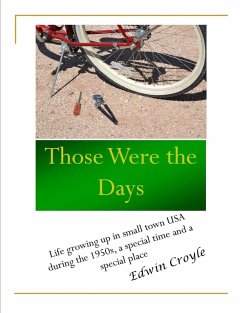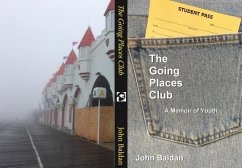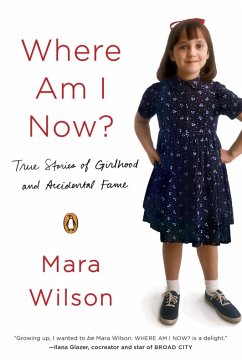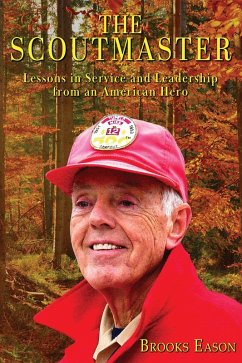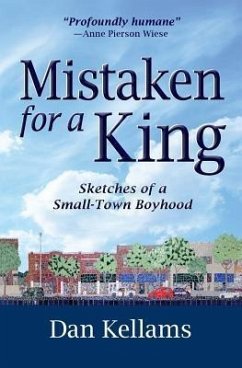
Atlin Where Everyone Knows Your Dog's Name (eBook, ePUB)
Versandkostenfrei!
Sofort per Download lieferbar
9,49 €
inkl. MwSt.
Weitere Ausgaben:

PAYBACK Punkte
0 °P sammeln!
Atlin Where Everyone Knows Your Dog's Name is a memoir of growing up in an isolated, northern, gold rush town. It tells of an innocent time, when imagination was king and the surrounding wilderness a playground. This story is as much about the town that molded and raised the author to be the person he is today as it is about his childhood. A town that survived and thrived on inclusion, acceptance and volunteerism. Where civic duty was learned from early childhood and performed with pride. In 1967, the Smith family moved from Juneau, Alaska, to the sleepy town of Atlin, British Columbia, Canada...
Atlin Where Everyone Knows Your Dog's Name is a memoir of growing up in an isolated, northern, gold rush town. It tells of an innocent time, when imagination was king and the surrounding wilderness a playground. This story is as much about the town that molded and raised the author to be the person he is today as it is about his childhood. A town that survived and thrived on inclusion, acceptance and volunteerism. Where civic duty was learned from early childhood and performed with pride. In 1967, the Smith family moved from Juneau, Alaska, to the sleepy town of Atlin, British Columbia, Canada. Atlin was scratching its way back from becoming a footnote in a history book, only recently escaping its ghost town status. Amid the influx of new families and money, it was experiencing a rebirth, a modern-day rush. This story follows the author through his early youth, his daily adventures surrounded by his family's many huskies and malamutes. With his buddies in tow, he enjoyed carefree days of swimming, fishing, hunting, and random adventures unknown to their city dwelling counterparts of the time. He was raised in a place without running water or sewer, without TV or radio. Where people burned wood for heat, and ate moose meat and lake trout most meals. Where the water was delivered once a week, and stored in the kitchen in a big barrel. The author has combined his own memories with the tongue-in-cheek writings of his mother from the time. In the early seventies his mother wrote humorous human-interest articles depicting northern living for the local newspaper. The author has included them in his narrative. This book follows the author and his friends through their daily. Trapping with Dad, grouse hunting with Mom, fishing and fort building with friends. All stories are told with self-deprecating humor in a familiar style, like he's telling stories to an old friend, he includes the reader in the dialog. Atlin The Town Where Everyone Knows Your Dog's Name tells of average life and average people, who in their daily lives did extraordinary things that pushed their boundaries and took them out of their comfort zones. In doing so, it made them anything but average. A forest fire erupting close to town, the family truck dropping through the lake ice, a vicious dog team fight on the trap line, the beauty of the northern lights on a thirty below night, seen while skating on a local pond, an impromptu chopper ride to the top of a nearby mountain, and close calls with bears are all average experiences of a not so average upbringing. Dogs, and their often-comedic antics, are threaded throughout this story, as they were threaded throughout the life of the author, his family and the community they lived in. It was a time not far removed from when dogs were central to the northern existence. Having lost popularity to the gasoline engine only a short time before, they were making a comeback, much like the community itself. Newcomers were keen to experience the joys and freedoms of travel by dog team, and dog racing was exploding across the Northland. The author's family was in the middle of the sled dog world. They ran dogs on their trap line and they raised and sold beautiful malamutes. As a youngster, the author thought himself as one of the pack, rather than an only child. This story will take the reader on an adventurous romp through a unique childhood, in a place like no other, at a time when kids were allowed to be kids. It will kindle nostalgic feelings for some, a yearning for adventure in others.
Dieser Download kann aus rechtlichen Gründen nur mit Rechnungsadresse in A, B, CY, CZ, D, DK, EW, E, FIN, F, GR, H, IRL, I, LT, L, LR, M, NL, PL, P, R, S, SLO, SK ausgeliefert werden.





